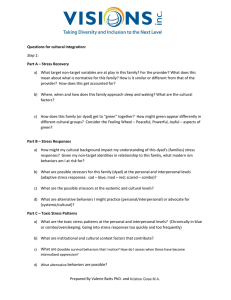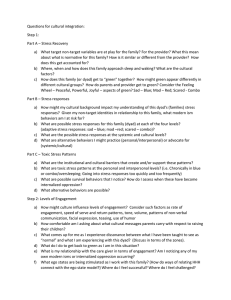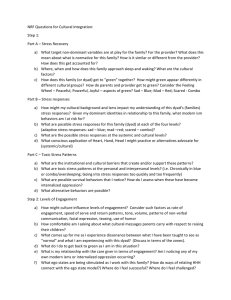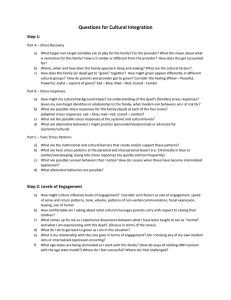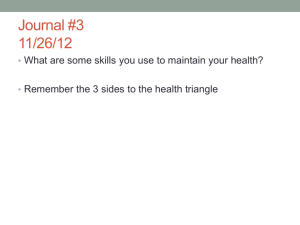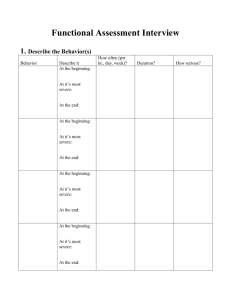Applying a Cultural Lens to the Neurorelational Framework (NRF):
advertisement
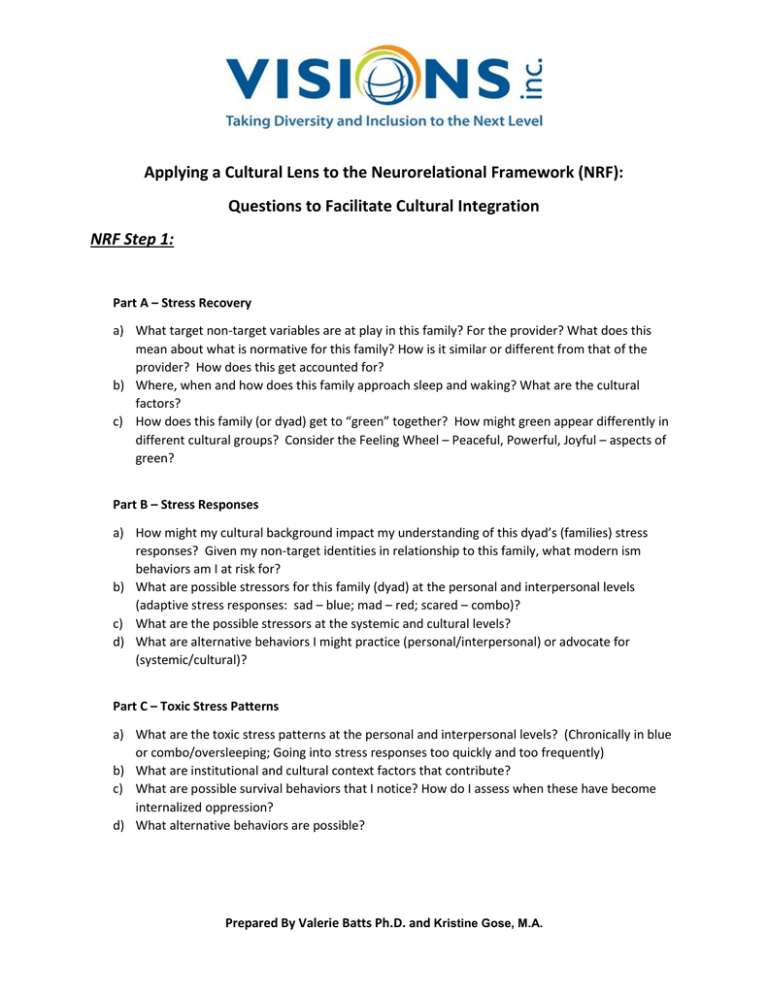
Applying a Cultural Lens to the Neurorelational Framework (NRF): Questions to Facilitate Cultural Integration NRF Step 1: Part A – Stress Recovery a) What target non-target variables are at play in this family? For the provider? What does this mean about what is normative for this family? How is it similar or different from that of the provider? How does this get accounted for? b) Where, when and how does this family approach sleep and waking? What are the cultural factors? c) How does this family (or dyad) get to “green” together? How might green appear differently in different cultural groups? Consider the Feeling Wheel – Peaceful, Powerful, Joyful – aspects of green? Part B – Stress Responses a) How might my cultural background impact my understanding of this dyad’s (families) stress responses? Given my non-target identities in relationship to this family, what modern ism behaviors am I at risk for? b) What are possible stressors for this family (dyad) at the personal and interpersonal levels (adaptive stress responses: sad – blue; mad – red; scared – combo)? c) What are the possible stressors at the systemic and cultural levels? d) What are alternative behaviors I might practice (personal/interpersonal) or advocate for (systemic/cultural)? Part C – Toxic Stress Patterns a) What are the toxic stress patterns at the personal and interpersonal levels? (Chronically in blue or combo/oversleeping; Going into stress responses too quickly and too frequently) b) What are institutional and cultural context factors that contribute? c) What are possible survival behaviors that I notice? How do I assess when these have become internalized oppression? d) What alternative behaviors are possible? Prepared By Valerie Batts Ph.D. and Kristine Gose, M.A. NRF Step 2: Levels of Engagement a) How might culture influence levels of engagement? Consider such factors as rate of engagement, speed of serve and return patterns, tone, volume, patterns of non-verbal communication, facial expression, teasing, use of humor b) How comfortable am I asking about what cultural messages parents carry with respect to raising their children? c) What comes up for me as I experience dissonance between what I have been taught to see as “normal” and what I am experiencing with this dyad? (Discuss in terms of the zones). d) What do I do to get back to green as I am in this situation? e) What is my relationship with the care giver in terms of engagement? Do I notice which of my modern isms or internalized oppression behaviors that might be triggered? f) What ego states are being stimulated as I work with this family? (How do ways of relating HHH connect with the ego state model?) Where do I feel successful? Where do I feel challenged? g) If so, what alternative behaviors do I need to practice? Prepared By Valerie Batts Ph.D. and Kristine Gose, M.A.
